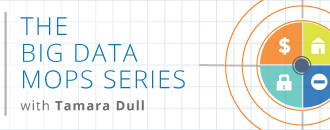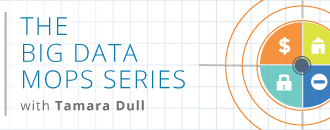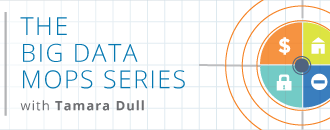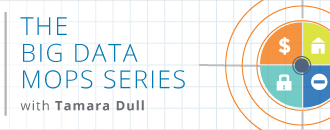
Sometimes a life lesson smacks you right upside the head—and if you’re anything like me, it may take a day, a month, or even a year or ten before you “get it.” Fortunately, this particular life lesson hit home quickly, and has quietly reminded me of its truth over the years. However, with my more recent focus on big data privacy, this lesson’s reverberations have become almost deafening.

Sometimes a life lesson smacks you right upside the head—and if you’re anything like me, it may take a day, a month, or even a year or ten before you “get it.” Fortunately, this particular life lesson hit home quickly, and has quietly reminded me of its truth over the years. However, with my more recent focus on big data privacy, this lesson’s reverberations have become almost deafening.
About the life lesson. The colleague/friend balancing act has always been a tricky one. Earlier in my career, when the internet was still making a name for itself, a dear colleague/friend was going through a challenging time in her personal life. I knew some of what was going on, but not much—given that it wasn’t any of my business and it wasn’t anything we really talked about. But due to the nature of our company roles and the relationships we shared in the company, I was often asked by others about my colleague/friend’s situation. The questions made me uncomfortable, yet each time, I responded with, “You need to ask her.”
One day, I mentioned to my colleague/friend that I was being asked a lot about her personal situation. Instead of her responding with the expected “yea, so-and-so asked” or “who’s asking” or “what are you saying” questions, she said rather indignantly, “Why are they asking you? It’s not your story to tell!” Needless to say, the discussion ended there.
Little did she know that I wasn’t telling her story, yet through this brief exchange, she gave me a not-yet-realized, valuable life lesson: “It’s not your story to tell.”
Why this matters. Just like “I see data. All the time. It’s everywhere.”, I marvel at how technology, the internet, and this digital age have forever changed how we share our personal information—and how others (individuals, companies, and governments alike) share ours.
And at the heart of all this sharing is our personal privacy—and the privacy of others. Even though technology has made it easier for us to exchange information, we can’t nor should we depend on technology to protect us from the use and abuse of it. This is where trust, an important human element, comes in. In this data-intensive economy, trust between individuals, companies, and government agencies needs to be earned, respected, and maintained. Without this trust, I firmly believe the data ecosystem will crumble.
Situations to think about. Let’s briefly look at some examples of how big data privacy issues are impacting what we share:
- The NSA. We all know about Edward Snowden and his need to tell the story of how the US government and several large companies are sharing information about us. He’s now sharing a similar story in New Zealand. Is this his story to tell? The debate rages on.
- Home Depot. One of the latest retail data breaches – larger than Target’s – has hackers sharing our personal information on the black market. It wasn’t their story (or their data) to tell (or sell). Who’s to blame? Who can we trust?
- Celebrity photos. Privately-stored intimate photos of various celebrities were ferreted out and stolen over Labor Day weekend and continue to be shared in the public social sphere. These are visual stories we should have never heard about.
Now let’s bring it closer to home: Let’s say you share a funny video on Facebook of your youngest son running around the backyard in his birthday suit. (Is this your story to tell?) Your mom comments and tells your 534 friends about when you took a dump in the community pool when you were a kid. (Is this her story to tell?) She then asks you how to scan and upload the picture.
We laugh at stories like this while we jokingly call it “TMI” (Too Much Information). But this is big data privacy in action. Did you realize that the videos and images we share of ourselves and others are just types of “big” data that we are sharing through big data applications (like Facebook, Twitter, LinkedIn, Pinterest, etc.)?
You’ve heard me say it before: We are living in a big data world. While this Facebook example may seem harmless to some, there’s a lot more “big data” out there that can and is being used to harm individuals, companies, and government agencies. Let me leave you with…
One final thought. Big data privacy is about you, me, them, and us. You have limited (if any) control over what others share about you, but you do have control over what you share about yourself and others. Just because you have someone’s personal information doesn’t mean you have to share or act on it. Remember: It may not be your story to tell.










